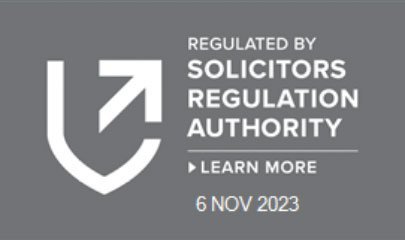Defining Divorce and Separation in English Law:
Divorce:
Divorce is a legal process that formally terminates a marriage. It is initiated by filing a divorce petition with the court confirming the irretrievable breakdown of a marriage. Previously an application had to be made on one of five grounds for divorce: adultery, unreasonable behavior, desertion, separation for at least two years (with consent), or separation for at least five years (without consent). Following the coming into force of the Divorce, DIssolution and Separation Act in April 2022, there is no longer a need to prove wrongdoing by the other party, so couples may get a no fault divorce.
As divorce results in the dissolution of the marriage, legal ties between the spouses are severed. This means that there may be a need for the division of assets and the making of arrangements for any children.
Separation:
Separation refers to the circumstance where married individuals live apart without officially ending the marriage. They may choose to do this informally and come to a separation agreement between themselves. In some cases couples may seek a legal separation, also known as a judicial separation. This is a more formal process requiring a court application. Separation does not legally dissolve the marriage, but may address financial matters and childcare arrangements.
Understanding the Key Differences
There are key differences between divorce and separation which should be understood so that you can make an informed decision about what is best for you and your family.
| Divorce | Separation | |
| Legal Status | Results in the legal termination of the marriage. | Maintains the marital status; couples remain legally married so cannot remarry. |
| Financial Implications | Division of assets and potential spousal maintenance may be determined by the court. Any will naming your spouse as a beneficiary will no longer be valid. | Financial agreements can be made and financial claims may still be made. |
| Childcare and Custody | Court decides on child arrangements (also known as child custody), maintenance payments, and visitation rights in the best interest of the child. | Couples can agree on arrangements, but can seek legal documents to enhance enforceability and clarity in responsibilities. |
What’s included in a separation agreement?
A separation agreement is a written agreement which sets out financial arrangements when a couple separates. It may include:
● who is responsible for the mortgage or rent and household bills;
● what will happen to any debts such as loans or credit cards;
● what will happen to any savings;
● arrangements for any children, including who they will live with and who they will spend time with;
● what happens to jointly owned items; and
● who will live in the family home and what will happen if it is sold, among other things.
Whether you are seeking a judicial separation or an informal agreement, it is wise to consult a divorce lawyer to assist in drafting the separation agreement. While not technically legally enforceable, an informal agreement may be taken into account if an application is later made to the court for a legal separation. The agreement is more likely to be legally binding if you and your partner have both had independent legal advice and have provided full financial disclosure. A divorce lawyer will also advise you as to whether there are any reasons you should not sign the separation agreement. Where, for example, one of you is more wealthy than the other, or your partner is intimidating you, professional advice will be particularly important.
Determining the Best Option for You
What is best for a couple or individual will depend on each person’s unique circumstances, so it is important to speak to a professional to understand the implications of separation or divorce. It may also be useful to explore counseling or mediation to help you and your partner navigate emotions and decisions constructively. Separation has the benefit of allowing you time to consider next steps before making a permanent decision, however this may not be appropriate in all circumstances.
Conclusion
The decision between divorce and separation in English law demands careful consideration of legal, emotional, and practical implications. Understanding the nuances and seeking appropriate guidance ensures a well-informed choice aligned with individual circumstances and objectives. Our experienced team of divorce lawyers can help you navigate all the legal and practical considerations to be made when separating. If you would like to speak to a divorce lawyer near you, ring us on [number] email us at [insert email] or click the link below:
Help me find a divorce lawyer near me.































































